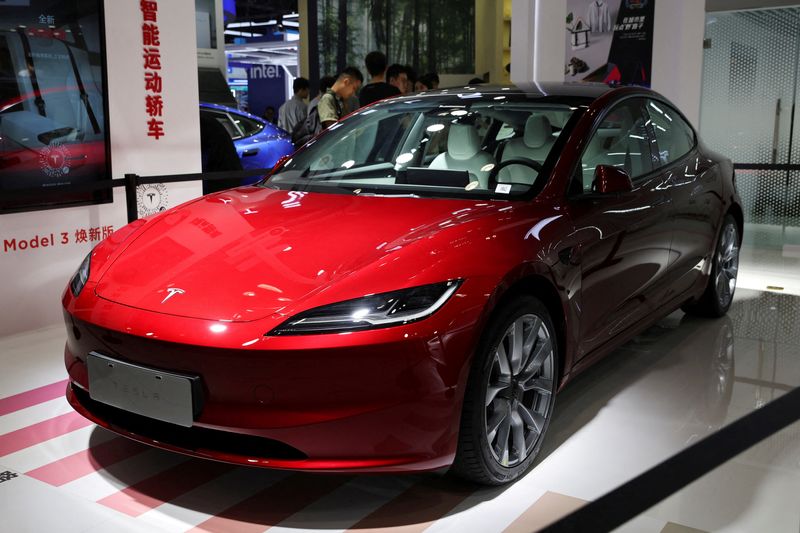Tesla to lose $7,500 consumer tax credits for some Model 3 vehicles
2023.12.13 03:23

© Reuters. FILE PHOTO: Tesla’s new Model 3 sedan is seen displayed at the China International Fair for Trade in Services (CIFTIS) in Beijing, China September 2, 2023. REUTERS/Florence Lo/File Photo
(Reuters) – Tesla (NASDAQ:)’s Model 3 Rear-Wheel Drive and Long Range vehicles will lose an up to $7,500 federal tax credit from Dec. 31 based on new guidance under the U.S. Inflation Reduction Act, a message on the U.S automaker’s website showed late Tuesday.
The U.S. Treasury issued guidelines earlier this month detailing new battery sourcing restrictions that take effect Jan. 1 aimed at weaning the U.S. electric vehicle supply chain away from China.
“Tax credit will end for Model 3 Rear-Wheel Drive and Model 3 Long Range on Dec. 31, 2023 based on current view of new IRA guidance. Take delivery by Dec. 31 for full tax credit,” the company said in a notice on its website.
Tesla did not immediately respond to a Reuters’ request for comment.
In April, the Treasury said new guidelines will slash the credits for the EV maker’s Model 3 RWD by half to $3,750 but that other Tesla models will retain the entire benefit.
In July, Tesla said the $7,500 federal tax credits for its Model 3 electric vehicles are likely to be reduced after Dec. 31, without elaborating on the reason.
The U.S. EV credit currently requires 50% of the value of battery components to be produced or assembled in North America to qualify for $3,750 of the credit and 40% of the value of critical minerals sourced from the United States or a country with which it has a free trade agreement.
Other carmakers such as Ford (NYSE:) and GM expect to qualify for the entire tax credits for many of their EVs from next year, while Volkswagen (ETR:) remains ‘cautiously optimistic’.








